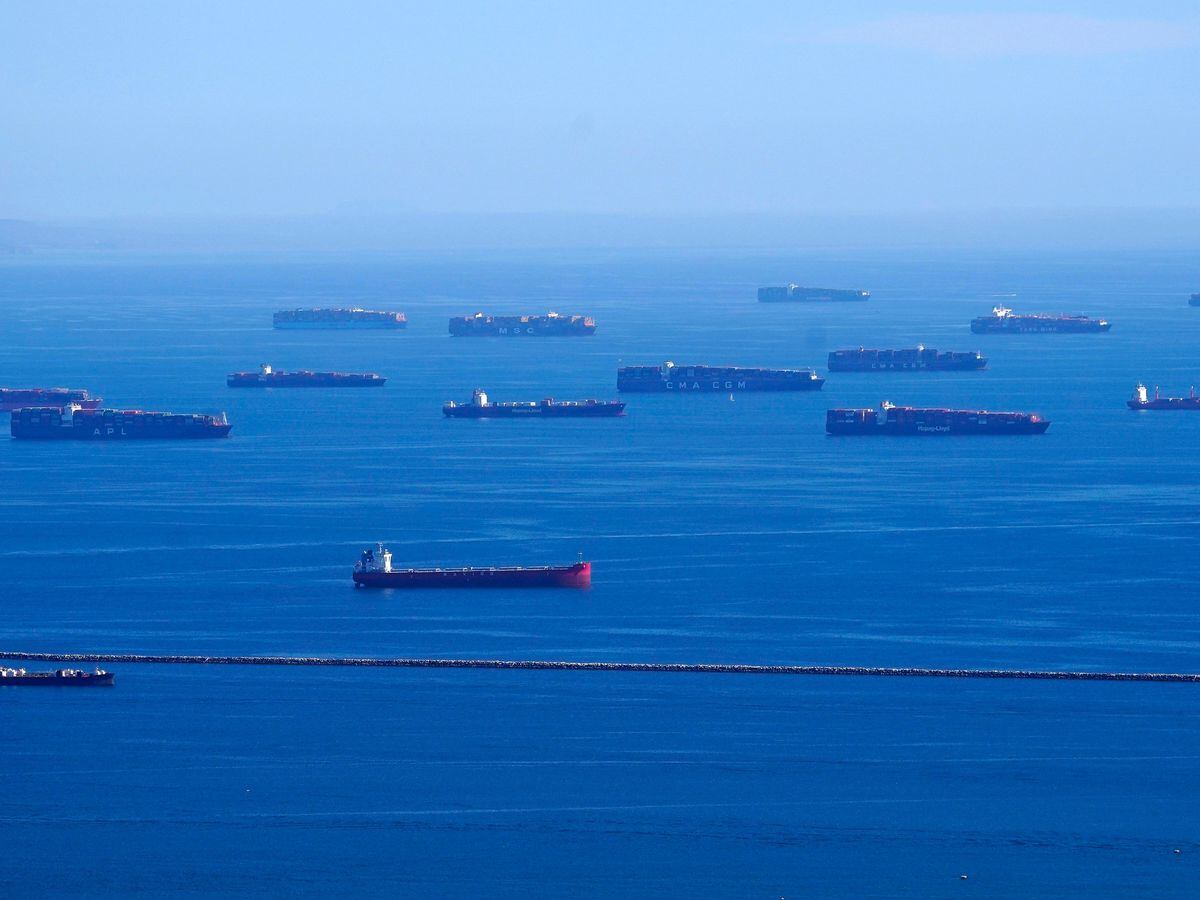
[ad_1]

Maritime nations have agreed to slash emissions from the transport trade to internet zero by about 2050 in a deal that some consultants and nations say falls brief of what’s wanted to curb warming to agreed temperature limits.
Negotiators on the assembly of the UN’s International Maritime Organisation (IMO) in London, seen as key to curb world warming to 1.5C since pre-industrial instances, rubber-stamped a deal for transport emissions to achieve internet zero “by or around” 2050.
The plan additionally requires transport emissions to be slashed by not less than 20% however aiming for 30% by 2030 and not less than 70% however working in direction of 80% by 2040, regardless of a push from Pacific nations for extra bold targets.
Experts calculate the trade should reduce its emissions by 45% by 2030 and attain internet zero by 2050 to maintain on monitor with the 1.5C purpose.
Environmentalists and a few nations pushing for extra bold targets are sad with the deal, which doesn’t set 2050 as a agency deadline for net-zero emissions or hold consistent with the warming restrict set within the Paris settlement.
One evaluation suggests each the much less and extra bold interim targets would see the transport trade deplete its carbon funds – a calculation of the quantity of carbon dioxide varied industries and international locations can emit earlier than world warming limits are breached – by early subsequent decade.
“We do not have the time to wait for regulation or alternative fuels to catch up,” mentioned Diane Gilpin, founder and CEO of Smart Green Shipping. “We need to move with urgency and work with what we have.”
The IMO’s targets are revised each 5 years. The earlier goal was for the transport trade to chop its emissions by not less than half from 2008 to 2050.
But environmentalists say that different gamers can surpass the IMO’s emissions plan.
“National and regional actors must take the initiative to enact a more ambitious policy on shipping emissions, corporate first movers must launch green shipping corridors to accelerate the uptake of zero-carbon fuels,” mentioned Jason Anderson, from the ClimateWorks Foundation.
Shipping at present accounts for nearly 3% of greenhouse fuel emissions, in keeping with the IMO.
A European Parliament report warned that share might improve dramatically by 2050 if steps will not be taken to scale back the sector’s reliance on fossil fuels.
[adinserter block=”4″]
[ad_2]
Source link